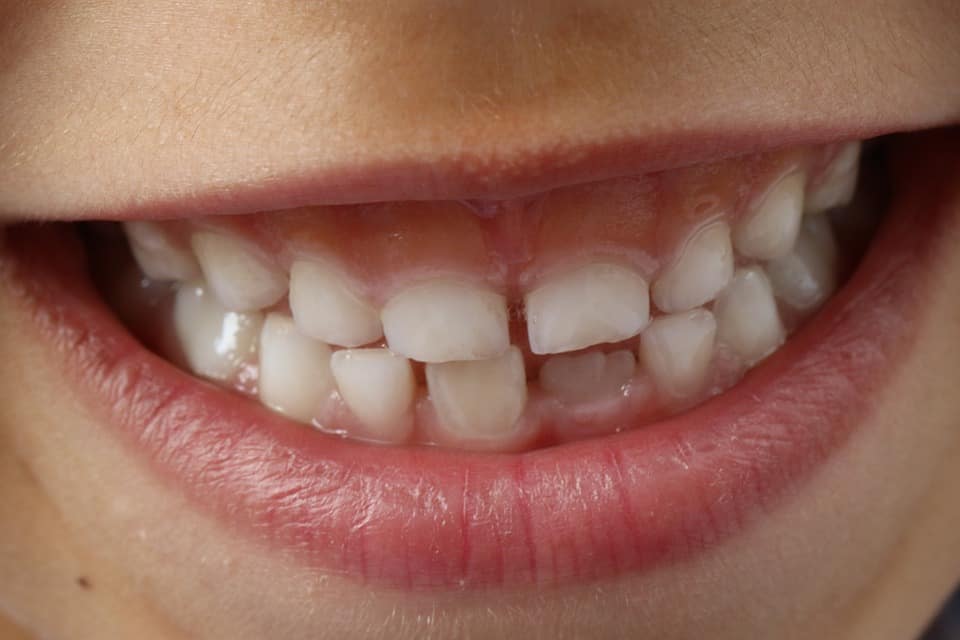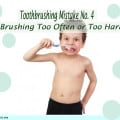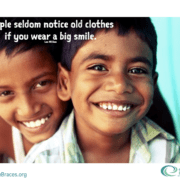What Guidelines Will Help Children Remain Cavity-Free?
Last Updated on May 3, 2019 by Guest Post
Dental decay is an incredibly common problem found in most offices. Unfortunately, when kids get cavities, they will need to have fillings placed that can affect their teeth for the rest of their teeth. The more fillings that are placed into the tooth, the more it compromises the integrity of the tooth and causes the need for root canals and crowns. Because of this, it is crucial that you work with your child to avoid and prevent cavities altogether so that your child will have clean and healthy teeth for a lifetime. Making changes to their diet and oral hygiene habits may also help other health conditions and will be good habits for them to carry on into adulthood.
What is a Cavity?
A cavity is a small amount of decay that is found on and within the teeth. Bacteria in the child’s mouth will eventually begin eating away at the enamel and then the inner dentin of the tooth. The cavity will eventually get bigger and bigger until it reaches down into the nerve of the tooth where it will need a root canal and eventual crown. Cavities are often painless when they are minimal, but they can become incredibly painful and problematic if they are allowed to get bigger and begin to eat into the nerve of the teeth. To avoid having your child be in pain and need extensive dental work done, you will want to consider having their teeth checked often as well as practice better oral health hygiene habits.
How Do Kids Get Cavities?
Kids can get cavities for a variety of different reasons and each of them is completely preventable. One of the most common reasons for kids getting cavities is not brushing their teeth good enough and not flossing. Most dental professionals, as well as orthodontists, will recommend using a power or electric toothbrush so that it gets into the crevices easier and better than manual brushes. It is also recommended that you stand with your child and help them brush their own teeth until they are roughly six years old. This ensures that they are brushing at least twice a day and that the brushing is being done properly. Flossing is another important step in keeping your child’s teeth clean and free of cavities. Flossing gets rid of food debris and particles between teeth where it’s more difficult to brush.
Other reasons that kids get cavities is because of what they’re eating as well as when they’re eating or drinking these foods. For instance, limiting the intake of sugary foods and beverages can help cut down on cavities. Also, preventing your child from drinking juice, soda, sugary beverages and milk before bed or throughout the night can help to prevent decay. Getting your kids to eat healthier and more wholesome foods can also be important changes to their overall health and well-being and are good habits to bring with them into adulthood.
Beach Braces – Manhattan Beach Orthodontics
How Do Cavities Affect Your Child s Teeth
If you are wondering how do cavities affect your child s teeth, there are many ways that this occurs. For one, a small cavity will need to be filled using either a metal or tooth-colored filling. No matter how small the filling, it is still compromising the tooth and can eventually lead to bigger problems later on in life. Likewise, a cavity that is deep can eventually affect the nerve of the tooth, resulting in a root canal. Because root canals take away the blood flow to the tooth, the tooth essentially dies and will eventually break or crack and need a crown. Cavities that are left completely untreated may eventually result in the entire tooth needing to be pulled because of severe decay. This can also be incredibly painful for the child and cause a lot of oral health issues.
What will Happen if a Cavity is Left Untreated?
What will happen if a cavity is left untreated is that it can become a much bigger problem. A small cavity often does not hurt and can be filled quickly and easily in the office. Cavities that are left untreated will eventually eat away at the tooth and get down into the nerve, causing a lot of pain and sensitivity. Likewise, the tooth will then need to be root canaled and will eventually need to be fitted for a crown because the blood flow has been cut off to that tooth. At this point, the child will more than likely be in a lot of pain, which can affect their health, happiness and their ability to engage with the world around them. It is not uncommon for children to miss out on school, activities and classes because of toothaches caused by untreated cavities. As a parent, it is crucial that you get them into a dental office regularly so that they can have their teeth checked.

How to Let Your Child Avoid Cavities
The best way to know how to let your child avoid cavities is to teach them proper brushing and flossing techniques as well as to help them when and where they need it. It’s recommended that you sit with your child until they are roughly six years old and guide them in brushing their teeth. However, if your eight-year-old needs help with brushing, you should always be there to help them out. Flossing is also important in keeping the teeth clean and free of debris. Regular dental visits and speaking with their orthodontist about what you can do to help their oral health and hygiene is also important in taking proactive steps to a cleaner and clearer smile. It is also a good idea to limit their sugary food and drink intake and to consider sealants as a way to protect teeth prone to cavities.
Consult with the Professionals
If you would like to have your children’s teeth checked and you want to be sure they are in excellent health, be sure to consult with the professionals. They will be able to help determine if there are any cavities present as well as to offer treatment and preventative options specific to kids who are more prone to cavities than others who might also come into the office.
Like what you read? Comment below or CLICK on an APP LOGO to follow us and share the conversation
Beach Braces Orthodontics
220 N. Aviation Blvd
Suite A
Manhattan Beach
CA 90266
Phone: (310) 379-0006
What guidelines will help children remain cavity-free?

Dr Patti Panucci attended the University of Louisville School of Dentistry for four years, where she graduated with a DMD degree (May 2000) among the Top 10 in her class. Following that, she headed west to Los Angeles to complete her three-year residency at one of the top-ranked orthodontic programs in the country – the University of Southern California.
Along with her certificate in orthodontics, Dr. Panucci earned a master’s degree in craniofacial biology. During those three years, she fell in love with Southern California beach life and decided that this was where her future lay.














Leave a Reply
Want to join the discussion?Feel free to contribute!